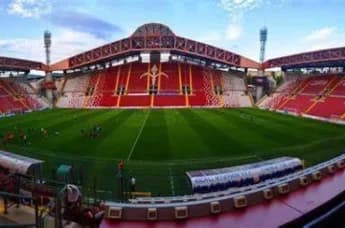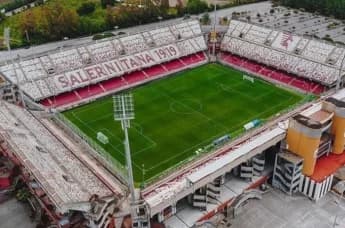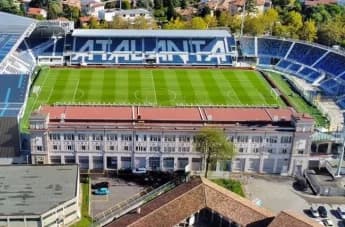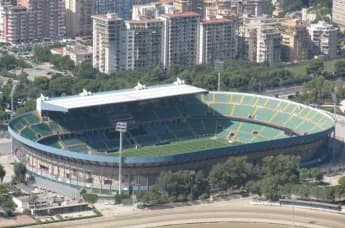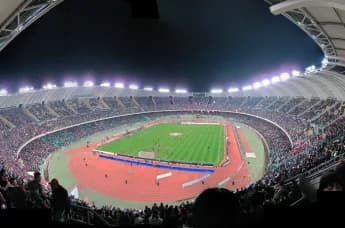Explore the storied Mestalla Stadium, a symbol of Valencia's football legacy, hosting legendary matches and providing an electric atmosphere for fans and players alike.
Mestalla Stadium (known as Estadio de Mestalla in Spanish and Estadi de Mestalla in Valencian) is one of the most prominent landmarks in Spanish football. Located in the vibrant city of Valencia, Spain, this historic arena serves not only as the home ground for Valencia CF but also as a significant cultural and architectural emblem. Since its inauguration on May 20, 1923, Mestalla has experienced almost a century of footballing triumphs, profound moments of resilience, and a strong bond with its local community.
Mestalla boasts a seating capacity of 49,430, making it the eighth-largest stadium in Spain and the largest within the Valencian Community. Its central location in Valencia allows the city's vibrant energy to flow into the stadium on matchdays. The name "Mestalla" derives from an ancient irrigation canal, which dates back to the 10th and 11th centuries during the period of Arab rule. This canal, which was once located near the stadium's south stand, serves as a significant reminder of the area's agricultural legacy and historical roots.
A standout characteristic of Mestalla Stadium is its North Stand, famous for its steep incline that provides fans with an exhilarating and close-up viewing experience. This architectural feature makes it one of the most daunting sections for visiting teams and a point of pride for supporters of Valencia.
Throughout the years, Mestalla has evolved beyond a mere football stadium—it has become a stronghold of tradition, a center of fan culture, and a venue for some of the most memorable moments in football history. From hosting the Spanish national team to being the backdrop for unforgettable matches in La Liga, the Copa del Rey, and the FIFA World Cup, Mestalla’s importance goes beyond the limits of Valencia and resonates with football enthusiasts worldwide.
Beyond its athletic heritage, Mestalla possesses significant cultural relevance. Its function during the Spanish Civil War as both a concentration camp and a storage facility underscores its resilience and ties to Spain's wider historical narrative. In spite of numerous obstacles, including the catastrophic flood of 1957, the stadium has endured, continually adapting and evolving over the decades.
Currently, Mestalla stands as a lively emblem of Valencia's football culture, where fervor intertwines with history, and each match transforms into a festive tribute to the beautiful game.
Memorable Matches
Mestalla Stadium has hosted numerous unforgettable matches, solidifying its reputation as an iconic venue in the history of football:
These memorable moments have ingrained Mestalla in the hearts of football fans around the globe, highlighting its significance as a venue for thrilling sports drama.
Amenities & Services
Mestalla transcends its role as a mere football stadium; it stands as a bastion of fan culture and boasts modern, cutting-edge facilities:
Despite its classic design, Mestalla combines historical charm with contemporary amenities, providing fans with a distinctive football experience.
Significance in History
Mestalla Stadium serves as a symbol of Spain's rich football heritage and the vital role Valencia has played in the evolution of the sport. Since its opening in 1923, the stadium has been the heart of Valencia CF, witnessing numerous football legends and countless unforgettable moments, securing its place in the history of both Spanish and international football.
In its formative years, Mestalla swiftly emerged as a symbol of the rising fascination with football in Spain. The expansion of its capacity during the 1920s reflected both the club's rapid ascent and the growing enthusiasm of its fans. By hosting its inaugural international match in 1925, Mestalla began to cement its status as a top destination for major football events.
The historical importance of the stadium goes beyond the realm of football. During the Spanish Civil War, Mestalla served in an unusual but vital capacity as a concentration camp and a storage site, reflecting the chaotic socio-political climate of that time. Although the war inflicted significant damage on the stadium, its subsequent reconstruction represented a symbol of resilience and rebirth, echoing the enduring spirit of the city and its inhabitants.
The 1950s represented a significant turning point for Mestalla, as it underwent extensive renovations to increase its capacity to 60,000 spectators. These upgrades established it as one of the premier stadiums in Spain and equipped it to host high-profile events, including matches during the 1982 FIFA World Cup. At that time, the stadium was known as Estadio Luis Casanova, named after the esteemed president of Valencia CF, and it was selected as a venue for this global event, attracting fans from around the globe and reinforcing its reputation as an international landmark.
The significance of Mestalla in the annals of Spanish football is profoundly linked to its connection with the Copa del Rey. The stadium has been the setting for ten finals, including iconic matchups between Barcelona and Real Madrid, reinforcing its reputation as a battlefield for the nation’s most intense football rivalries. Additionally, Mestalla has served as a venue for the Spanish national team numerous times, notably during the 1992 Barcelona Olympics, where Spain’s U-23 team secured the gold medal.
Additionally, the stadium has acted as a refuge for other teams in times of need. Levante UD found temporary shelter at Mestalla, while Real Madrid hosted European Cup matches there during the renovations of their own stadium. These events highlight Mestalla's significance not only to Valencia but also to the broader landscape of Spanish football.
Even with modern developments, the stadium maintains an enduring appeal. The ancient irrigation canal of Mestalla, which inspired the stadium's name, serves as a poignant connection to the cultural and historical heritage of the city. The choice to change its name back from Estadio Luis Casanova to Mestalla in 1994 further solidified its status as a cherished symbol of Valencia.
Future Events
Mestalla Stadium remains a key location for major football matches and other important events. As the home ground of Valencia CF, it is central to the club's La Liga journey, where supporters eagerly anticipate thrilling confrontations with rivals like Barcelona, Real Madrid, and local opponents Villarreal during the Valencian derby. Furthermore, Mestalla frequently hosts Copa del Rey matches, a tournament rich in history, having been the venue for numerous finals throughout its illustrious existence.
International football plays a significant role in the events hosted at Mestalla. The stadium has been the venue for historic matches involving the Spanish national team, and it is poised to host upcoming friendly matches, UEFA Nations League games, and possibly fixtures related to Spain’s candidacy for the UEFA Euro 2032 tournament. The combination of Mestalla's location, lively atmosphere, and its iconic reputation positions it as a top choice for such events.
Moreover, the renowned Fallas Festival in Valencia often brings an influx of tourists to the city, and Mestalla's prime location makes it a key element of the local festivities. The stadium is also well-suited to host cultural or musical events, as its rich history and impressive architecture render it a sought-after venue for entertainment beyond the realm of football.
As we look to the future, the upcoming completion of the Nou Mestalla introduces a fresh element to the stadium's history. While the opening of Nou Mestalla will signify the start of a new era, the events held at Mestalla will offer fans a sentimental goodbye, allowing them to savor every final moment in this iconic venue.
Supporter Experience
Being present at an event in Mestalla Stadium goes beyond simply viewing a football game; it’s an experience that immerses you in a vibrant and fervent atmosphere, showcasing Valencia’s passion for the sport. The thunderous cheers from the crowd, particularly from the steep North Stand, generate an electrifying ambiance that can daunt rival teams and invigorate the Valencia players. The design of the stadium facilitates an intimate connection for fans, bringing them closer to the action and making each goal, tackle, and celebration feel deeply personal.
For supporters, the experience on match day starts well before the whistle blows. The Mestalla Stadium is conveniently situated in the lively city of Valencia, providing easy access through various transport options such as buses, metro lines, and nearby parking facilities. Around the stadium, there are bustling cafes and bars where fans converge to savor pre-match meals, beverages, and chats that heighten the anticipation leading up to the game.
Within the stadium, visitors enjoy modern facilities that harmoniously blend with the historical essence of Mestalla. The venue provides a comfortable atmosphere, featuring well-kept seating areas and a variety of food and drink options, all while maintaining its unique character. Special zones for families and accessibility provisions guarantee an inclusive experience for all attendees.
The Valencia CF Museum, found within the stadium, is an essential destination for both club supporters and those interested in the history of football. It features a remarkable array of trophies, jerseys, and memorabilia, inviting guests to explore the rich heritage of the club. Guided tours of Mestalla offer an exclusive view of the legendary venue, including visits to the dressing rooms, media areas, and players’ tunnel, providing a unique insight into the stadium’s workings.



